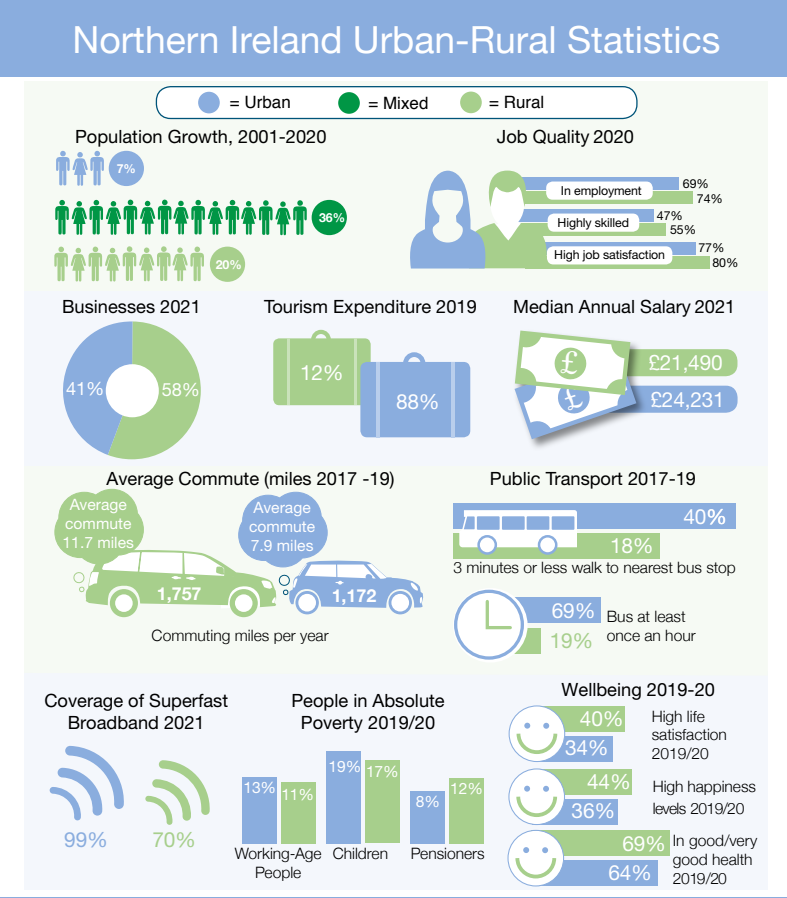If you live in rural Northern Ireland (NI), you are more likely to be happy, be satisfied with life, and own your own home - even if it will be more expensive than an urban one - according to a new report from the Department of Agriculture, Environment and Rural Affairs (DAERA).
Key Rural Issues 2021 aims to highlight key urban/rural differences and disparities across a range of domains.
Among the many findings, it revealed that rural and urban economies in Northern Ireland differed substantially in terms of dominant sectors, with 40% of rural businesses belonging to the agriculture, forestry and fishing sectors, followed by construction (17%).
Urban businesses, meanwhile, were found to be diverse, and spread across a variety of industries, with professional, scientific and technical businesses (13%) the largest, closely followed by retail (12%), construction (10%), and arts, entertainment and recreation (10%).

Key statistics from the DAERA report include:
- Population growth from 2001-2020 in rural areas has outstripped that in urban areas by a factor of almost three to one (20% to 7%);
- Rural workers (91%) are also much more likely to use private transport to commute than those from urban areas (76%);
- More than half (58%) of NI businesses are in rural areas, yet rural businesses account for less than a quarter (20%) of employees and around a quarter (25%) of total business turnover;
- Just 18% of all overnight tourism visits to NI, and only 12% of associated expenditure took place in rural locations;
- Levels of home ownership are higher in rural than in urban areas (80% to 65%), with house prices in rural areas higher, on average, than in towns and cities;
- People living in rural areas were more likely to be in employment, with around three quarters (74%) employed either full or part-time;
- People living in rural areas were more likely to report high happiness levels (44%) than those in urban areas (36%), and high life satisfaction (40% compared to 34%);
- Rural dwellers experience longer waiting times for emergency services than their urban counterparts, and waiting times are increasing;
- Offences with a racist, sectarian or homophobic motivation increased in urban areas between 2019 and 2020, with little change in rural areas.

